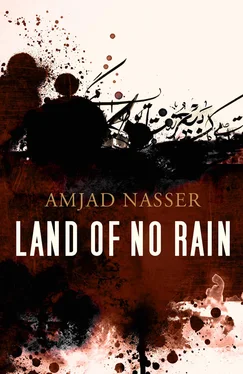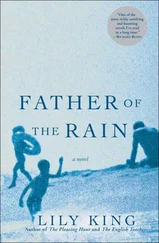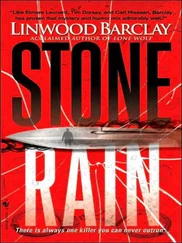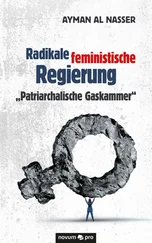There was another silence. Then the woman spoke, with something like a sigh. ‘My God, it’s a long time ago. I don’t know how long.’ You found out that the pages he had shown her had been torn out of a diary she had written during an affair with a resistance leader in a city the name of which you didn’t catch. The city was besieged and then occupied, when the woman was a student in her twenties. She was in love with the field commander in the city. When the city fell under occupation, she didn’t leave the city, unlike some of the other foreign students there, but stayed alongside the resistance fighter. But the emotions that arise in such circumstances apparently do not remain unchanged. The occupation forces were driven out of the city and the field commander became prominent in society, famous for his heroic exploits. The young woman went back to her country to arrange to move back and live with him, but the former commander sent her a letter telling her that he was now having a relationship with another woman. ‘Sorry, our relationship was more a matter of humanitarian and political solidarity than of love.’ That’s what he wrote. The effect of the letter was devastating. She didn’t know what to do. Her first reaction was to throw her diary, in which she had recorded private and public moments related to the field commander and the resistance, into the waste-paper basket.
You didn’t learn anything about the young woman’s anguish, because she didn’t speak of it. It seemed that little of her pain remained, so long after the wound. But you did find out how the memory came back to her. The diary had been found by the programme producers, who would retrieve people’s lost or forgotten moments. That was the special feature of this radio programme, which was popular among men and women with little to celebrate or regret. Time generally ensures that such feelings fade away.
In the flea markets common in that country, shoppers such as you can find personal possessions such as underwear, pictures, diaries and medals from the world wars: amazing things. Amazing to you at least, for whom such possessions are personal and intimate and should not end up being desecrated in that way. It was in such a market that the producers had come across the woman’s diary. As for how the diary, thrown in the rubbish in a moment of anger, had reached the flea market, that’s another story, but it shows that what for us is a final act might be the beginning for someone else, and that our decisions about the fate of something do not necessarily come to pass. It seems that everything has another life even when it’s thrown in the rubbish bin. Anyway, what matters is that the producers had tracked down the woman through the address written on the inside cover of the diary. That detail didn’t surprise you because you know that people in that country can be born and die, generation after generation, in a house with the same address, in a neighbourhood where the long streets lined with houses do not change. Even the trees are not uprooted or replaced unless a storm blows them down or they are attacked by deadly insects, some of which, they say, arrive on immigrant ships.
At the end of the programme the presenter asked the woman, ‘What are you going to do with the diary?’
The woman paused for a while, and then said, ‘I don’t know. I might read it, or I might throw it straight in the bin.’ She seemed to regret giving a hasty answer that might suggest resentment unworthy of her pride. Of course it wasn’t possible to see her face, but that moment of silence on the radio weighed heavily. The woman, her old wound exposed to an inquisitive audience, quickly laughed — a jerky laugh — then added with a tongue-in-cheek warning, ‘As long as you don’t bring it back to me again!’
The story had the effect of magic.
You don’t believe in signals the way your father did. You waited nonetheless. You wouldn’t just wait, you would cross your arms and wait, or lay your right hand casually on the table in a café where you were the only customer. That wasn’t exactly how you waited. You have lived and worked in several countries and moved around. In the meantime the blood in your veins has run fast and slow. You have fingered the secret cross on your stomach thousands of times. You have gasped and sighed endlessly. You have tasted a hundred flavours of coffee. You have smoked countless cigarettes and drunk enough to wreck a camel’s liver. Faces that you don’t remember have passed you by, and others have stamped their cheerfulness or their melancholy on your memory for ever. You have slept in many beds, some for a single night. You have smelled the scents of women — some more than once, others never to be smelled again. Suns have set and suns have risen. You have looked up at skies with big stars that lit up your sleepless nights, sometimes at skies where no stars shone and no meteorites fell. You have walked with many people (though fewer and fewer) along roads with landmarks that grew indistinct or disappeared entirely when you reached them. The idea of going back dogged you at every step, like your shadow. It didn’t happen when you wanted, but much later. The shadow faded and kept its distance, but it never completely abandoned you.
Some beginnings are acute angles, and others obtuse.
A decisive beginning puts footsteps on roads that may be long or may be short,
And this probably happens early.
There are abortive beginnings, appointments awaited,
Circuitous routes, twisting and turning,
This is a foregone conclusion.
From time to time you would go to the flea market in the City of Red and Grey. In that city, which had taken in many such as you, you spent a part of your sojourn, your exile, your wanderings, call it what you will, waiting for the signal to return. You used to visit flea markets in your own country. You continued to do so anywhere your footsteps led you. In the City of Red and Grey these markets are usually held on Saturdays and Sundays. People there sell some of their possessions, because they’re bored with them or they need the money, or they might deal in antiques, local and foreign. Such markets are common in today’s world, which is afflicted with a modern scourge, unknown to people in the past, called consumerism. You don’t always go to these markets with the intention to buy, but you might need things that aren’t available in ordinary markets, so you resort to these markets that are set up haphazardly in public spaces, empty playgrounds, in schoolyards or outside churches. The main reason why you go to these markets is curiosity, the secret desire to find out what people possess and what they are getting rid of, as if you were looking inside houses that it’s not easy for foreigners like you to enter. The people of the City of Red and Grey have no scruples about selling things they no longer need, even their underwear. How often have you seen pretty girls at wooden stalls offering their tiny coloured panties, some of them mere thongs, or bras of various cup sizes? How often have you seen letters written during one of the world wars, tied together with silk thread, or black-and-white photographs of men and women with movie-star haircuts and in fashions from the 1940s and 1950s, offered for sale by old women? That’s your explanation of why you go to those markets. But some might say it’s blatant nostalgia for similar markets, with goods less varied or daring, that you knew in your own country.
In such markets in Hamiya the brand names — some famous and some unknown — would whisk you away to distant lands without you needing to move an inch. The people call them bala markets. You don’t know exactly what the name means. You guess it comes from the Arabic word bila , meaning old and shabby, but some say it’s a corruption of a foreign word that you don’t remember now. You’ve lived in several countries: there are bala markets in almost every country, but they can’t be compared with those in the City of Red and Grey. In the bala markets in your country few people sell their own things. They are mostly clothes and shoes that come from abroad. The goods might be charity donations sent from rich countries to poor countries in the Global South, where corrupt hands, instead of distributing them to the needy, have turned them into a profitable business. In the City of Red and Grey it’s ordinary people, not traders, who sell their clothes when they’ve been overtaken by fast-changing fashion. But they also sell various other things: crockery, music cassettes, electrical appliances, spare parts for machines that are no longer used, old stamps, personal letters, books that have been read only once, watches, compasses that don’t point in the right direction, and medals from ruinous wars.
Читать дальше












